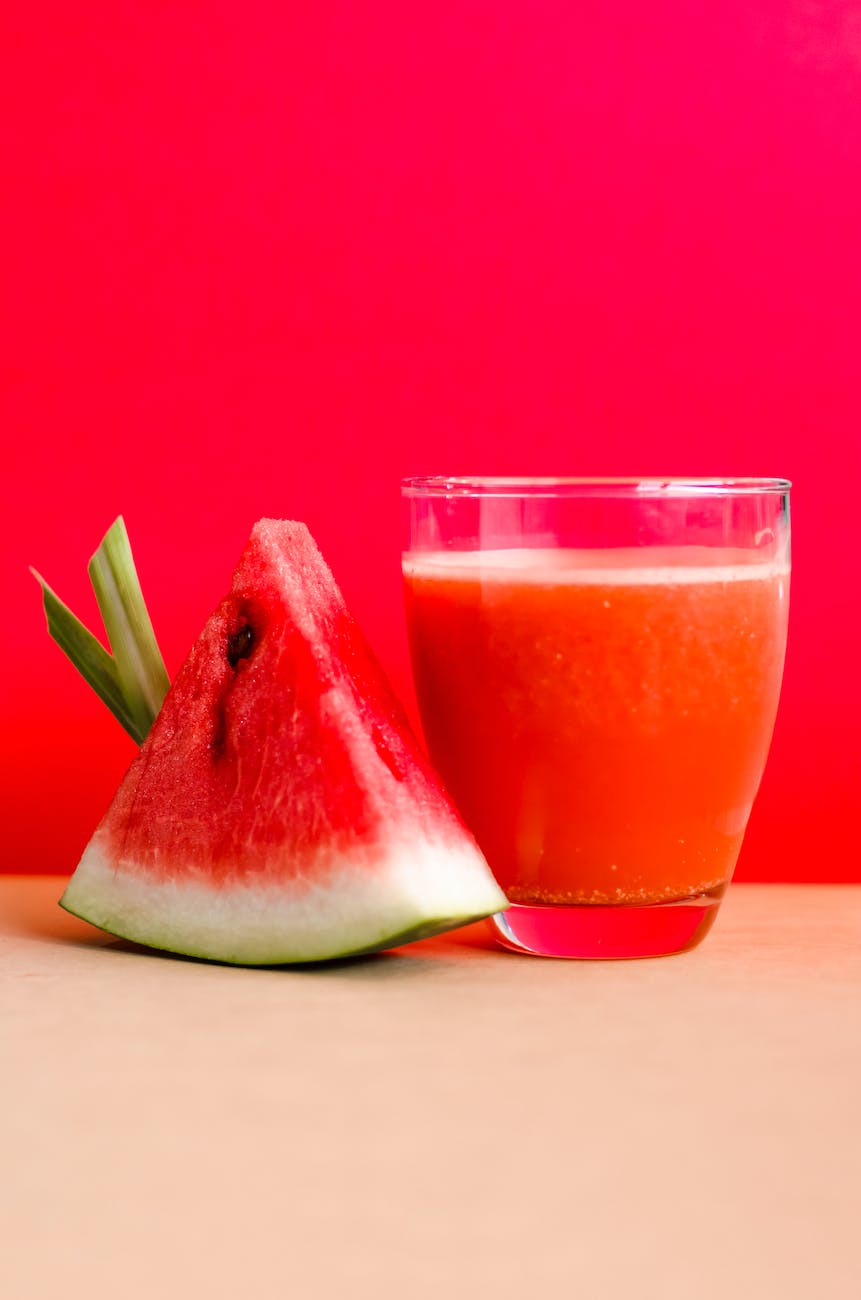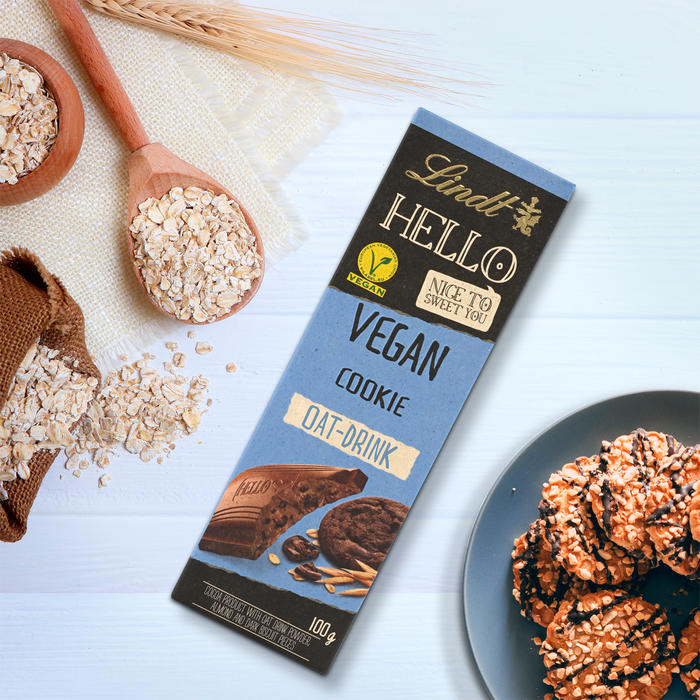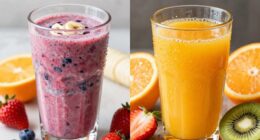Are you looking for a delicious and nutritious snack that can boost your health? Look no further, because watermelon is the answer! This juicy and sweet fruit offers great nutritional value and numerous health benefits. As a certified dietitian/nutritionist, I am excited to share with you the amazing advantages of incorporating watermelon or its juice into your diet.
Watermelons are often associated with summertime picnics and barbecues due to their refreshing flavor. However, there’s much more to this popular fruit than just taste – it’s also packed full of vitamins, minerals, antioxidants, and other plant compounds which offer numerous health benefits. From helping keep your heart healthy to improving digestion and reducing inflammation, including watermelon in your diet could be incredibly beneficial!
Furthermore, when juiced, many of these same nutritional components become even easier for our bodies to absorb. So if you’re looking for an easy way to start making healthier eating choices while still having fun with food and drinks, why not give watermelon juice a try? You’ll reap some great rewards from sipping away at this tasty beverage.
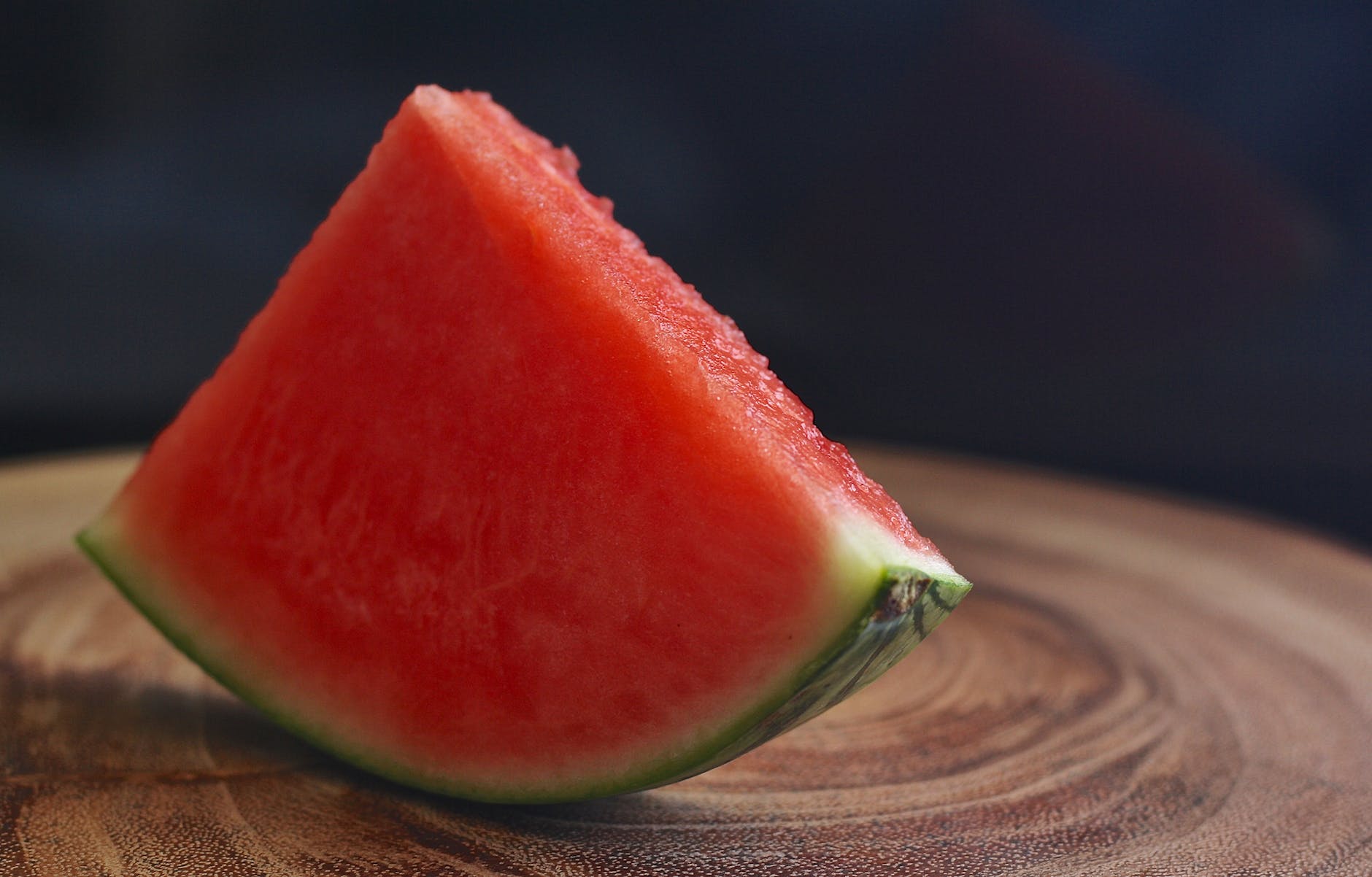
Keep reading to learn more about all the wonderful ways that adding watermelon (or its juice) into your daily routine can benefit both your body and mind!
Watermelon nutrition provides a powerhouse of nutrients that are essential for optimal health. Not only does watermelon taste delicious, but it is also rich in minerals and vitamins.
Every 100 grams of watermelon contains 30 calories, 7.55 grams of carbohydrates, 0.2 grams of fat, and 0.6 grams of protein. Watermelons contain significant amounts of both vitamin C and vitamin A; one cup supplies 21% and 18%, respectively, of the daily recommended values for these two vitamins. In addition to these vitamins, watermelons offer other important minerals such as potassium and magnesium which play an important role in maintaining healthy blood pressure levels; they provide 10% and 8% DV (daily value) respectively per cup serving size.
So not only is this sweet fruit low in carbs and calories, but it’s packed with vital nutrients! To explore further into the nutritional content of watermelon, let’s dive deeper into its vitamin and mineral content…
Vitamin And Mineral Content
Watermelon is an excellent source of vitamins and minerals, particularly vitamin A and B. It also has a high mineral content including magnesium and potassium.
Vitamin A plays an important role in vision and immune system health, while vitamin B helps the body break down carbohydrates for energy production. Magnesium aids with muscle contraction, blood pressure regulation, nerve transmission, and enzyme activation. Potassium helps regulate fluid balance in the cells to reduce swelling as well as supports heart function by controlling electrical activity in muscles.
Overall, watermelon contains essential nutrients that help support overall health. The juice from this fruit boasts similar benefits although it can be higher in sugar due to its natural sweetness. While having some added sugar isn’t necessarily beneficial for your health, the juice still provides many of these same essential vitamins and minerals that are found in whole watermelons – just without the fiber bulk!
Next we’ll explore how watermelon’s antioxidant properties may provide additional benefits to one’s diet.
Antioxidant Properties
Watermelon, and its juice, are a rich source of antioxidants. Specifically, it is high in lycopene, beta-carotene, flavonoid content and antioxidant content. This makes watermelon an ideal choice to help protect the body from free radical damage that can be caused by lifestyle factors like smoking and pollution.
- Lycopene levels: Watermelons have among the highest levels of lycopene for any fresh fruit or vegetable!
- Beta-carotene levels: Research has found that watermelons are one of the best sources of beta-carotene compared with other fruits & vegetables.
- Flavonoid content: Flavonoids act as powerful antioxidants which may reduce inflammation associated with chronic diseases such as cancer and heart disease.
- Antioxidant content: The antioxidant properties in watermelons scavenge free radicals throughout your body; this helps keep your cells healthy and functioning optimally.
These benefits make watermelon an excellent choice for those looking to improve their overall health through diet and nutrition. Furthermore, research has shown that consuming more plant-based foods helps reduce oxidative stress on the body while simultaneously providing essential nutrients needed to maintain optimal health.
With all these wonderful benefits packed into one juicy fruit, it’s no wonder why so many people reach for a slice (or glass) every day! Now let’s look at the potential cardiovascular benefits of this amazing superfood…
Potential Cardiovascular Benefits
The potential cardiovascular benefits of watermelon and watermelon juice are definitely worth exploring. Research has shown that it can help to reduce blood pressure and cholesterol levels, two important factors for heart health. One study even showed that those who drank one cup of watermelon juice per day for four weeks had a decrease in their systolic blood pressure by an average of 6%.
Another study found that drinking 4 cups of watermelon juice over the course of three months could lead to lower LDL or “bad” cholesterol, as well as improved HDL or “good” cholesterol numbers. This suggests that regular consumption of watermelon may be beneficial for overall heart health. Additionally, several studies have indicated that consuming watermelon can also help to regulate blood sugar levels, which is particularly useful for diabetics.
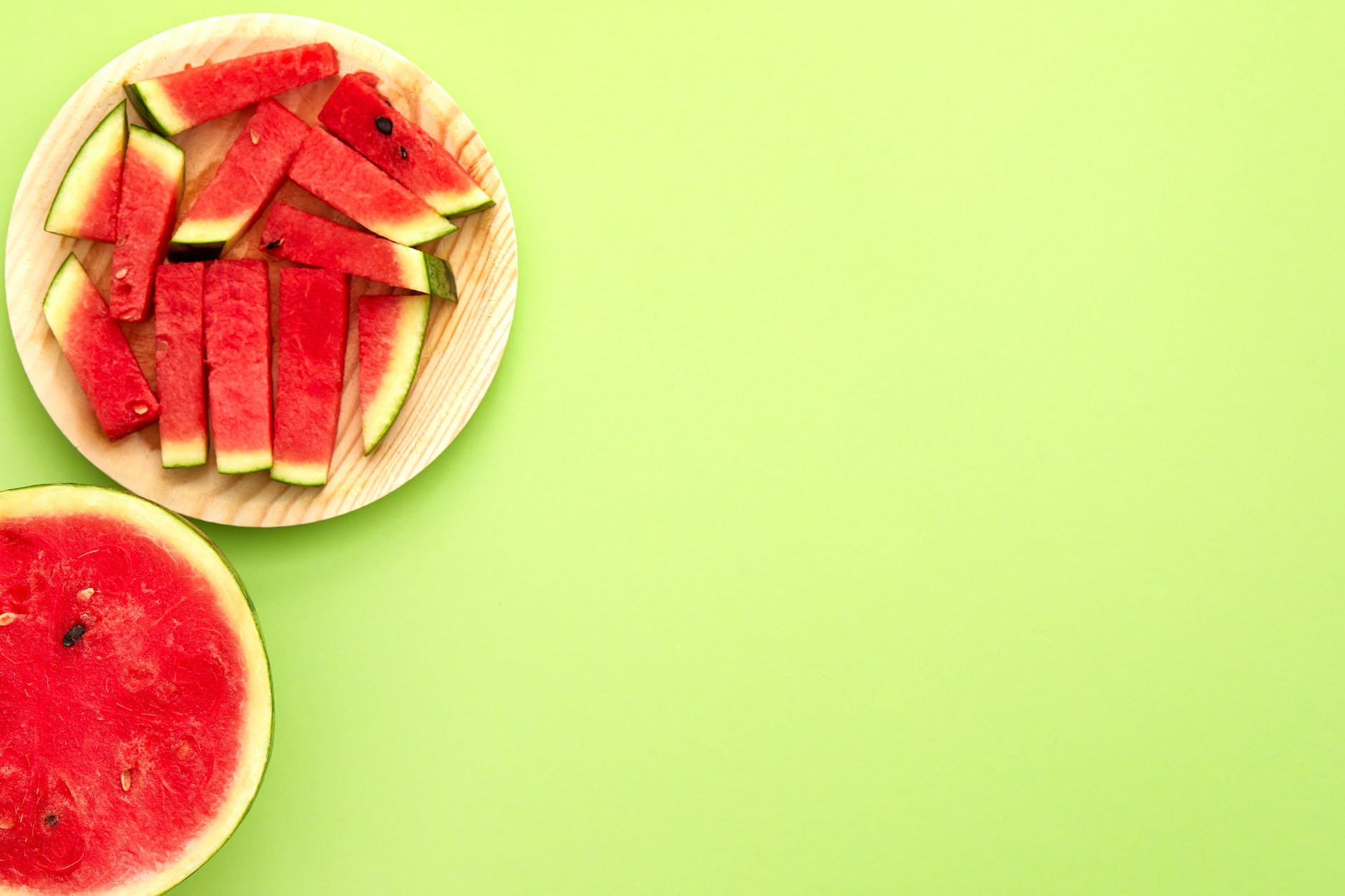
These findings suggest that regularly consuming either fresh watermelon or its juice can offer some significant cardiovascular benefits. And while more research is needed in this area, these results indicate that adding watermelon into your diet could potentially improve both your physical and mental wellbeing!
Moving on from these potential cardiovascular benefits, let us explore how including more watermelon in our diets might also influence our digestive health…
Improved Digestive Health
The digestive health benefits of watermelon and its juice are often overlooked. Watermelon contains a number of beneficial compounds, including digestive enzymes that help break down food during digestion. In addition to the digestive enzymes, watermelon is also rich in probiotic-friendly gut bacteria which can help improve overall digestive health.
When it comes to fiber content, watermelon has more than most other fruits. Eating fiber helps promote regularity and keeps your bowels healthy by allowing for proper waste elimination.
The high fiber content found in watermelon can be helpful for those with constipation or irregular bowel movements as well as those who want to maintain regularity.
Watermelons contain electrolytes such as potassium and magnesium which aid in regulating fluid balance within the body’s cells. This helps keep the gastrointestinal tract running smoothly so you stay hydrated and functioning at an optimal level throughout the day. All these properties combined make watermelon an excellent choice for improved digestive health.
The anti-inflammatory properties of this delicious fruit means it can also provide relief from occasional stomach pains or bloating that may occur after eating certain foods or beverages.
Anti-Inflammatory Properties
Sometimes, it can seem like the only thing watermelon is good for is summertime fun and games. But what if I told you that this juicy fruit packs some serious health benefits? Yes, it’s true! Watermelons have amazing anti-inflammatory properties that make them a great choice to soothe inflammation in your body.
Watermelon contains lycopene, an antioxidant that helps protect against cell damage caused by free radicals. This powerful nutrient has been linked to numerous health benefits, including reducing inflammation and improving heart health.
Studies suggest that consuming watermelon may be beneficial in decreasing levels of inflammatory markers such as C-reactive protein (CRP). Additionally, research points to watermelons ability to reduce markers of oxidative stress and increase overall antioxidant capacity.
When it comes to juicing with watermelon, there are many ways to get the same anti-inflammatory effects without having to eat the whole fruit. Juicing with watermelon allows you to extract its nutrients more quickly than eating it raw or cooked. Plus, when you juice with watermelon you don’t need any added sugar or sweeteners – just pure deliciousness! Whether you’re using fresh or frozen fruits and vegetables, adding a few pieces of watermelon into your blend can help fight off inflammation from within.
So next time you’re looking for a natural way to combat inflammation, consider reaching for a refreshing slice of freshly cut watermelon or whipping up a nutritious glass of homemade juice!
Role In Weight Management
Watermelon can be an excellent part of a weight management plan. It is low in calories and high in fiber, making it an ideal food to fill you up without adding too many extra calories. Not only that but its nutrient profile contains several compounds that have been associated with positive metabolic effects and fat burning.
| Benefits | Components | Mechanisms |
|---|---|---|
| Weight-loss | Lycopene, Choline, Citrulline | Appetite Suppressant Metabolic Effects Calorie Counting/Filling Properties |
These components work together to create a perfect balance for maintaining healthy body weight. The lycopene acts as an antioxidant which helps reduce inflammation throughout the body, while choline aids in digestion and citrulline increases circulation. All of this translates into improved metabolism, better appetite control and fewer cravings! Furthermore, watermelon’s low calorie count makes it great for curbing hunger pangs or snacking between meals.
By incorporating watermelon into your diet regularly, you can reap all these benefits from one delicious fruit! Its unique combination of vitamins, minerals, antioxidants and other nutrients make it more than just a sweet summer treat; it’s also a powerful tool for aiding in weight loss efforts. With so much potential for helping you reach your goals faster, there’s no reason not to give yourself the benefit of eating watermelon today!
Natural Hydration Source
As a registered dietitian, I’m always looking for natural sources of hydration. Watermelon is one of the best hydrating fruits and vegetables out there! Not only is it packed with essential vitamins and minerals, but it’s also full of water-rich nutrients that help keep your body hydrated.
Watermelons are made up of 92% water by weight and contain electrolytes like calcium, magnesium, potassium, and sodium – all important elements when it comes to maintaining good fluid balance in our bodies. Plus, they’re low in calories and high in fiber which makes them a great snack choice for those trying to lose weight or manage their blood sugar levels more effectively.
In addition to watermelon, other hydrating fruits include oranges, strawberries, grapefruits, cantaloupe, honeydew melon, grapes, apples and pears.
Similarly hydrating vegetables include celery, cucumbers, lettuce greens (such as romaine and arugula), bell peppers (green/red/orange) tomatoes (including cherry tomatoes). All these foods can provide you with an excellent source of hydration while providing your body with healthy nutrients too!
These nutrient-packed options make adding some extra H2O into your daily routine easy and delicious!
Juicing Tips & Ideas
Juicing watermelon is an easy and delicious way to get the health benefits of this nutrient-rich fruit. Here are some tips and ideas for getting started:
- Start with fresh, ripe watermelons – choose ones that are heavy for their size and free of bruises or dents.
- Cut the melon into wedges and remove the rind before juicing it.
- Use a good quality juicer to ensure you’re extracting all of the beneficial nutrients from your fruits and vegetables.
- Experiment with different recipes – try adding other fruits or veggies like cucumber, lemon, or ginger to make unique combinations!
For those who aren’t familiar with juicing basics, don’t worry! There are plenty of resources available online that will help you learn more about making healthy juices at home. Additionally, there are countless recipes out there if you want to get creative in the kitchen while still reaping the many health benefits associated with consuming freshly made juice on a regular basis.
Whether you’re looking for something new to add to your daily routine or just want an easy way to incorporate more nutritious foods into your diet, watermelon juice is a great option!
Just remember to follow safe handling practices when preparing any type of fruit or vegetable for consumption—this ensures that all potential contaminants have been eliminated prior to drinking. With these precautions in mind, you can enjoy all of the amazing health benefits found in this refreshing drink.
Precautions To Consider
When it comes to consuming watermelon, there are certain precautions that should be taken in order to ensure a safe and healthy experience. Firstly, those with an allergy or intolerance to melons may need to avoid eating them altogether. Symptoms of an allergic reaction include hives, swelling of the throat or tongue, difficulty breathing, and abdominal pain. Additionally, if you have any kind of food-related allergies or intolerances, you should check with your doctor before adding watermelon into your diet.
Secondly, swallowing whole seeds can cause intestinal blockage due to their size and shape; therefore they should not be ingested. If inadvertently consumed, seek medical attention immediately as surgery may be necessary for removal.
Thirdly, overconsumption of watermelon has been linked to cases of gout due to high levels of fructose present within the fruit’s flesh. Therefore individuals with pre-existing gout conditions should monitor their intake accordingly. Lastly, improper storage or handling can lead to watermelon-induced food poisoning caused by harmful bacteria such as salmonella or E coli so make sure proper hygiene practices are followed when preparing and storing this delicious snack at home!
By taking these simple but important steps we can all enjoy the wonderful health benefits associated with watermelon while avoiding any potential risks involved in its consumption.
Frequently Asked Questions
How Much Watermelon Juice Should I Drink Each Day?
Have you ever had a day that seemed to go your way? That’s the feeling I get when I talk about watermelon juice. It’s nutritious, delicious and easy to drink! The combination of these three factors make it hard not to love.
When considering how much watermelon juice we should be drinking each day, there are some important things to consider. First, let’s look at the benefits:
- Watermelon juice has very few calories but is packed with nutrients like vitamins A & C as well as potassium and magnesium.
- Drinking watermelon juice can help improve heart health by lowering cholesterol levels.
- Watermelon juice may even have anti-inflammatory properties which could reduce inflammation in the body.
The amount of watermelon juice you should drink per day depends on your individual needs and lifestyle habits. Generally speaking, registered dietitians recommend sticking within 4-8 ounces daily for most people, depending on age and activity level.
If you’re looking for extra energy throughout your day or want an immunity boost, up to 16 ounces per day might be beneficial. For athletes or those engaging in physical activities regularly, aiming for 12-16 ounces could provide additional hydration support without relying on sugary sports drinks or soda alternatives.
At the end of the day though, what truly matters is listening to our bodies and making mindful decisions around food choices – including watermelon juice intake – so that we feel energized and nourished throughout our days!
Are There Any Side Effects Associated With Drinking Watermelon Juice?
When it comes to drinking watermelon juice, there are some potential risks and side effects associated with consuming too much. As a registered dietitian/nutritionist, I always want my clients to be aware of the potential consequences of their dietary choices.
It is important for those who choose to drink watermelon juice regularly to monitor the amount they consume each day. Drinking more than one cup of watermelon juice can cause increased levels of sugar in the body, leading to an increase in blood glucose levels and potentially contributing to weight gain.
Additionally, if you suffer from kidney stones or have had problems with bladder infections, drinking too much watermelon juice may worsen these conditions as it contains large amounts of potassium citrate which has been known to exacerbate these medical issues.
Therefore, moderation is key when deciding how much watermelon juice should be consumed on a daily basis. While this delicious beverage does contain many vitamins and minerals that are beneficial for our bodies’ health, we need to ensure that we aren’t overdoing it since excessive consumption could lead to undesirable side effects. For most people however, moderate amounts of watermelon juice offer numerous benefits such as providing hydration, helping maintain healthy skin and hair and assisting with digestion throughout the day.
As such, before incorporating this tasty treat into your regular diet plan, consult with a nutrition professional about any associated risks so that you can make sure it’s right for you!
Does Watermelon Juice Contain Added Sugar?
Many of us are concerned about how much added sugar is in our food, and for good reason. So when it comes to watermelon juice, does it contain any added sugar? It’s time to get the facts straight.
To start off with, natural sugars from fruit like watermelons are very different from processed or refined sugars. Natural sugars found in fruits have been proven to have a positive health impact due to their high nutrient density. On the other hand, added sugars can be detrimental if consumed in excess since they provide calories without any nutritional value.
So what about that refreshing glass of watermelon juice – is there added sugar lurking inside? The answer is no; you don’t need to worry! Watermelon juice contains only natural sugars coming directly from the fruit itself. That means that as long as you’re careful not to overdo it (a serving size of 4-6 ounces per day should do), then you can enjoy your favorite beverage guilt-free! There’s no need to fear consuming watermelon juice because of its naturally occurring carbohydrates and fructose.
In short, when reaching for a tall glass of juicy goodness, rest assured knowing that the sweetness is all thanks to Mother Nature herself and not some sneaky artificial sweetener!
How Does Watermelon Juice Compare To Other Fruit Juices Nutritionally?
Comparing the nutrition of watermelon juice to other fruit juices is an important question. Nutritional benefits from different types of fruits can vary significantly and it’s worth taking a closer look at how they compare nutritionally. As a registered dietitian, I’d like to share some facts about watermelon juice and other fruit juices so that you can make informed decisions when selecting drinks for yourself or your family.
When looking at the nutritional content of various types of fruit juices, one should consider their caloric content first. Watermelon juice has fewer calories per serving than many other popular juices – with only 48 calories in 8 ounces compared to apple juice which contains 112 calories in 8 ounces. This makes watermelon juice a great choice if you’re looking for something low-calorie but packed full of flavor. Additionally, due to its relatively high water content (92%), watermelon juice is naturally very hydrating – perfect for those hot summer days!
The nutritional benefits don’t end there though; as well as being lower calorie than most other common juices, watermelon also provides more vitamins and minerals than many other options on the market today. It’s especially rich in vitamin C, lycopene and potassium – all essential nutrients our bodies need for optimal health and wellness.
Plus, since it’s made from real fresh fruit rather than concentrate or flavoring agents found in store-bought varieties, you can be sure you’re getting all the natural goodness without any added sugars or artificial additives.
With these facts in mind, it’s clear that making a few simple swaps towards healthier choices such as switching out higher calorie sugary drinks with unsweetened natural alternatives like freshly squeezed watermelon juice could have huge impacts on our overall health & wellbeing over time. So why not give it a try?
Does Watermelon Juice Contain Caffeine?
Are you curious about the caffeine content of watermelon juice? If so, this article is for you! As a registered dietitian/nutritionist, I’m here to provide insight into what exactly is in that delicious glass.
First off, let’s put it out there: no, watermelon juice does not contain any caffeine. In fact, most fruit juices are naturally void of the stimulant. That said, some brands may add caffeine to their products – typically in trace amounts – as an added energy boost or flavor enhancer. So if you’re looking for a jolt with your refreshment, be sure to check the label before purchasing and consuming.
So what other options do we have when it comes to caffeinated beverages? Here’s a quick list of popular drinks with varying levels of caffeine:
- Coffee – 95-200 milligrams per 8 ounces (237 ml)
- Tea – 25-110 milligrams per 8 ounces (237 ml)
- Soda – 20-90 milligrams per 12 ounces (355 ml)
- Energy Drink – 70-240 milligrams per 8 ounces (237 ml).
If you’re trying to stay away from caffeine but still want something cold and refreshing on hand, why not try one of these healthy alternatives Instead? Water infused with fresh fruits and herbs provides natural sweetness without any artificial sweeteners or calories; coconut and almond milk can also offer up flavorful yet dairy free sips. And don’t forget about smoothies made from whole fruits and veggies like spinach and kale—they make great snacks too!
No matter which route you choose, keep in mind that hydration is key–especially during hot summer months where thirst needs extra attention! Just remember to read labels carefully so that you know what’s going into your body.
Conclusion
As a registered dietitian and nutritionist, I’m always looking for ways to incorporate healthy foods into my clients’ diets. Watermelon juice is an excellent choice because it’s packed with vital nutrients like vitamins A, B-6, C, lycopene and potassium. It also has no added sugar or caffeine.
One interesting statistic that stands out to me when considering the health benefits of watermelon juice is that one cup contains nearly half of your daily recommended intake of vitamin C. That makes this tasty drink not only delicious but also incredibly nourishing!
If you’re looking for a way to add more antioxidants and minerals to your diet while still enjoying something sweet and refreshing, then watermelon juice is a great option. While it’s important to enjoy all types of fruits in moderation as part of a balanced diet, watermelon juice can be enjoyed up to two times per day for optimal health benefits.
Hi, I’m Alexander. I’m a vegan of over 20 years, and I initially made the switch for health reasons. However, as time went on, I became more and more passionate about the ethical and environmental implications of leading a vegan lifestyle.
I am the author of The Graceful Kitchen, a vegan blog where I share recipes for delicious and nutritious vegan meals. As someone who is deeply committed to living a cruelty-free life, I am also a strong advocate for using whole foods as the foundation of a healthy diet – and believe that going vegan is one of the best ways to achieve this.
